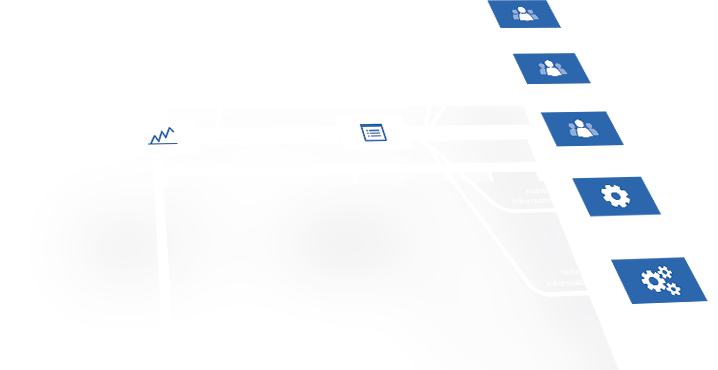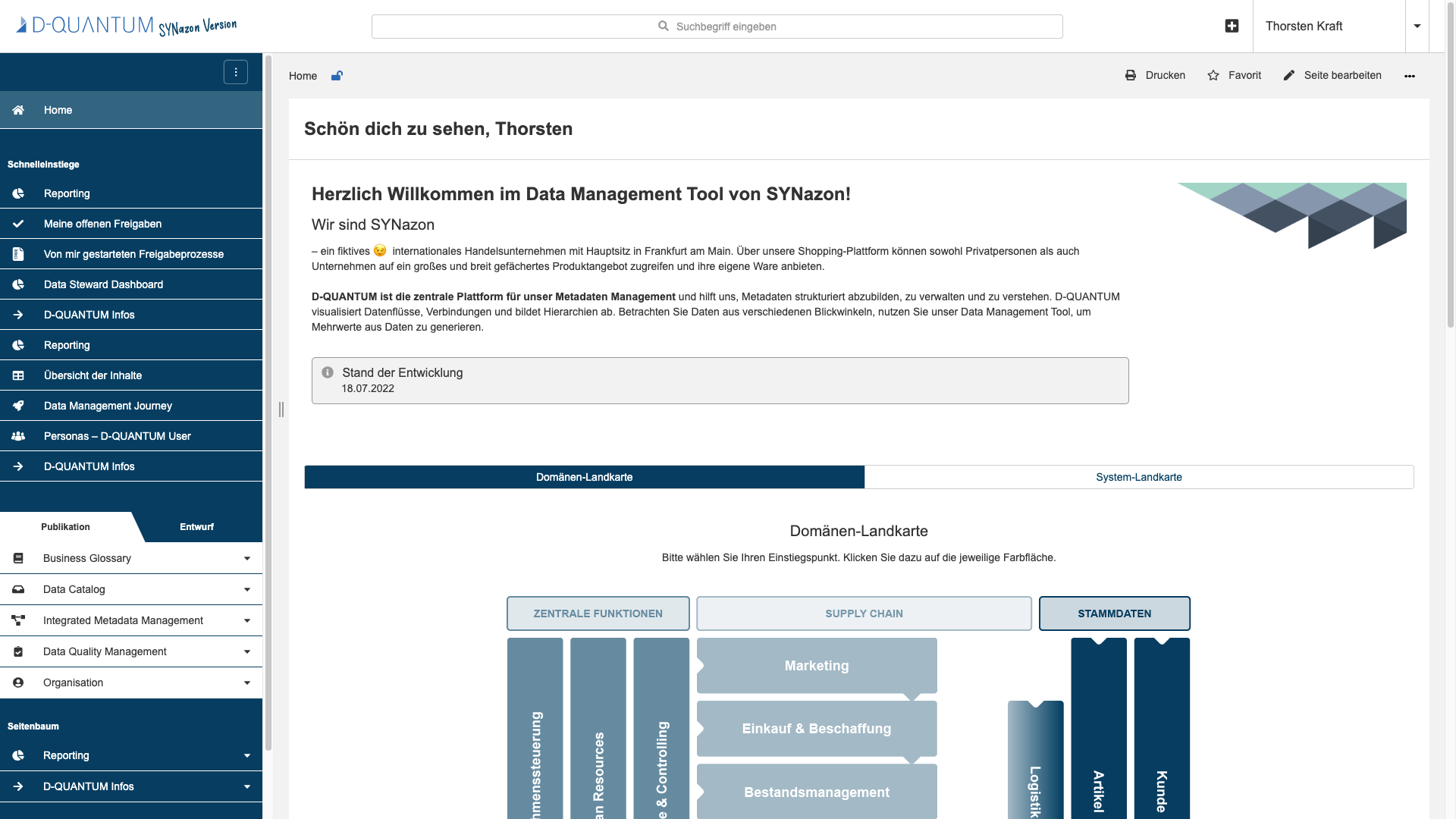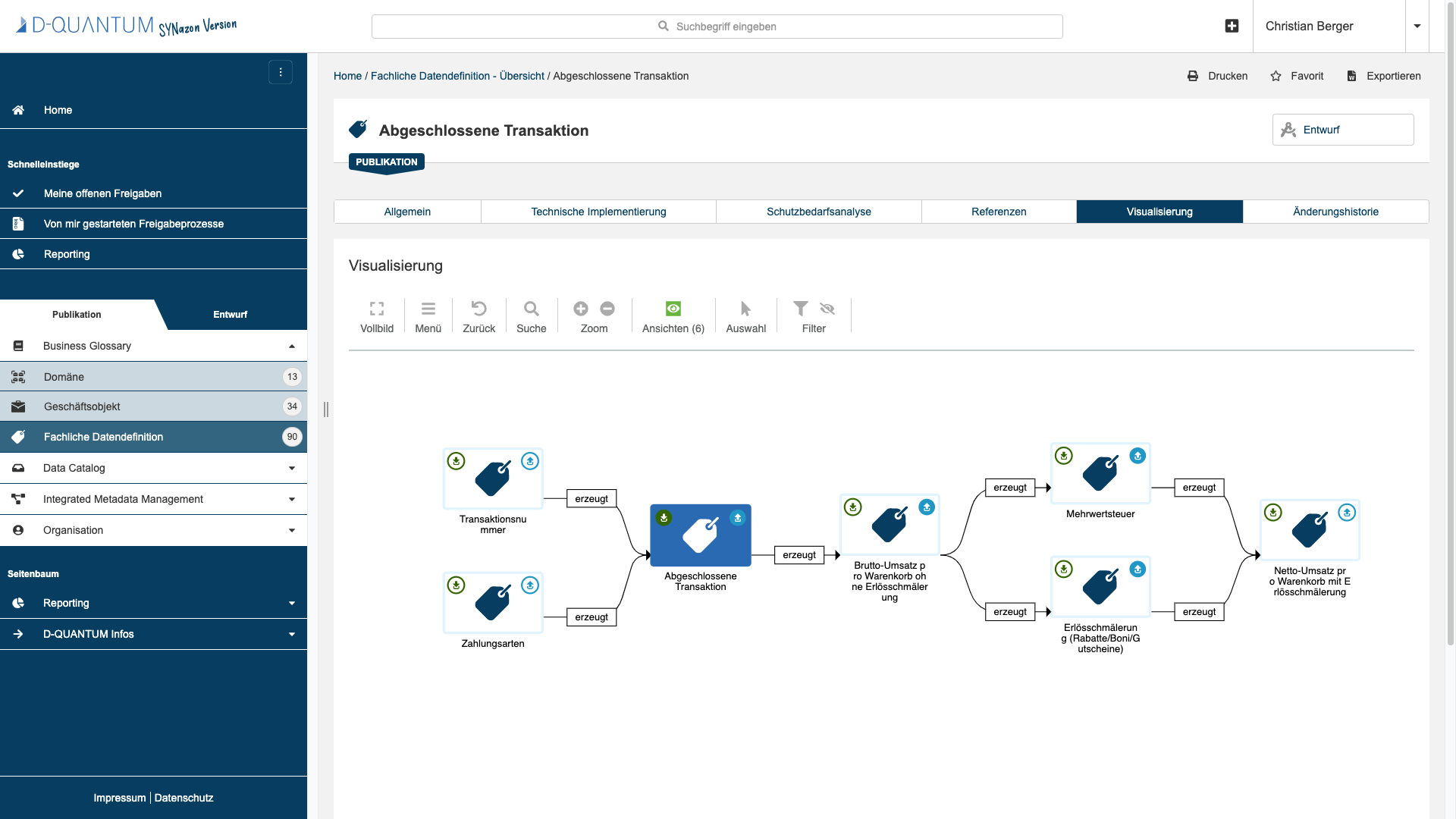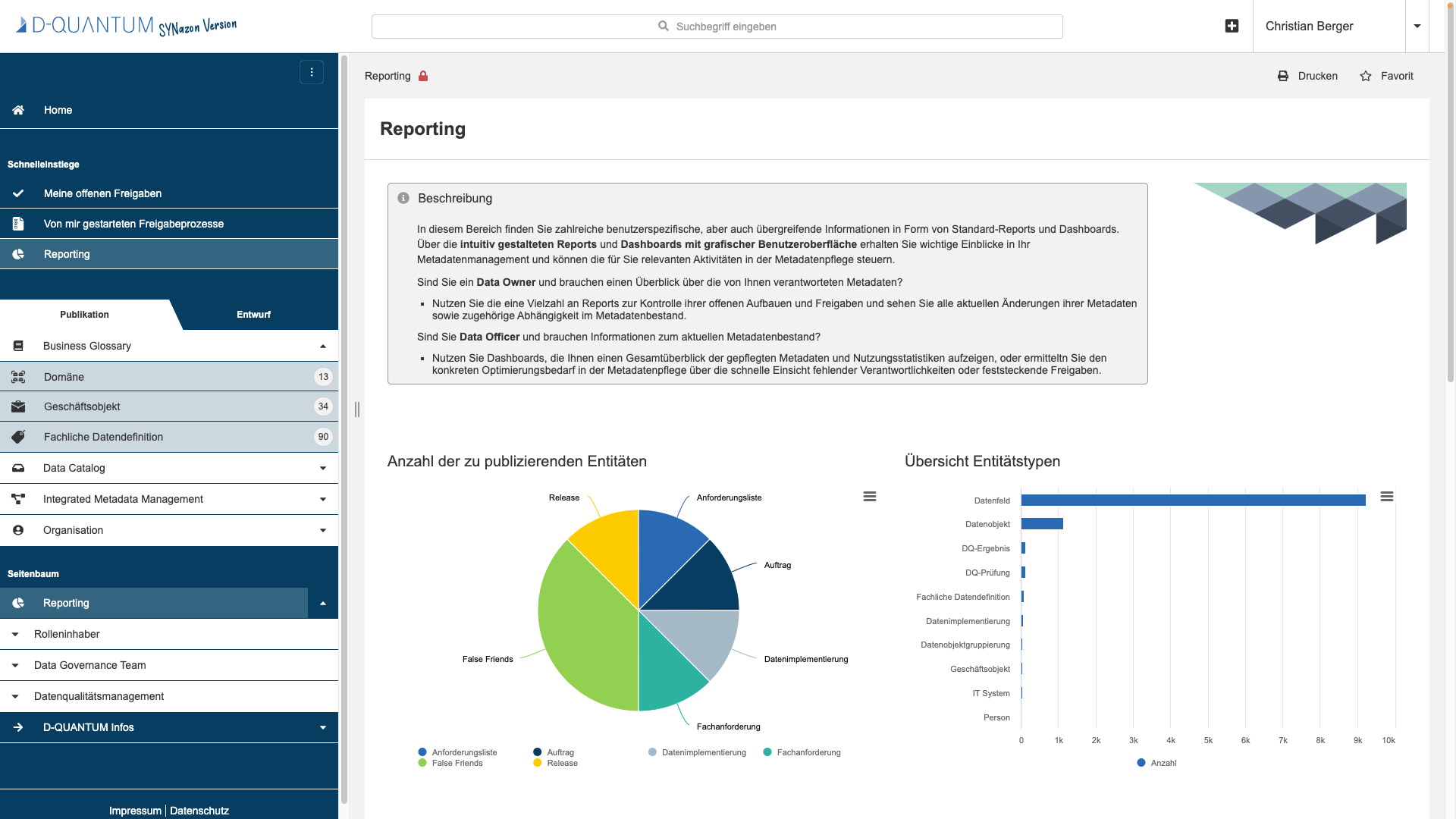The initial situation
Recognising the benefits of Data governance
Data Governance is a system which enables organisations to get the most out of their existing data.
An effective data governance requires the integration of the functional departments and should as well be addressing the following issues. A common understanding of definitions, purpose and responsibilities within the affected data and its processing is crucial.
Data governance activities contribute to different strategic objectives.
Primary objectives are, without a doubt, a consistent data understanding, regulatory compliance and transparency of the data processing.
For this reason, it is important to gather all the jointly developed definitions and make them available to the firm. D-QUANTUM provides a solution, which saves time and makes sure everybody speaks the same language.
The central storage in D-QUANTUM excludes the possibility of a multiple, contradictory data maintenance.
A complete Metadata management forms the basis for further Data governance activities.
Clear competences and organisational structures are fundamental components of every Data governance concept.
D-QUANTUM offers a flexible representation of responsibilities and therefore a fast and easy way to find assistance. In addition, it is possible to use the relations between the organisational structures in order to control workflows.
This makes sure everybody concerned – person, group or division, are aware and approve of a specific change. All activities are historicised in an authority-compliant and audit-proof form.
Standardisation improves quality and saves time
Through its forms-based input-options, D-QUANTUM allows you to bring your metadata into a structured and standardized form. As a result, the metadata, eg. ratios, are being analysed and linked to the processes, which these ratios originate from.
Besides the regulatory compliance, numerous other possibilities of analysing the interaction between processes, organisational units and results objects, arise.
As a consequence – high transparency of the dependencies and responsibilities within a firm is established.
All your financial ratios at one glance
D-QUANTUM provides great freedom at designing the data model to describe your data and ratios. In this way, it is possible to describe different information elements like reports, financial ratios, business objects or attributes.
There is a possibility to define the properties of the information elements and the relations between them.
Based on defined relations, the visualization component creates an organized and simple picture of the data lineage, calculations, involved processes or organizational units or other data objects.
Powerful DWH combined with an interactive user interface
D-QUANTUM does not have big requirements for the IT-architecture. It is possible to import data from different sources thanks to flexible interfaces. Additionally, manual edits or entries of the imported data is possible.
It is possible to define workflows and dashboards with task lists to support the maintenance of data and guaranteeing the data quality.
This is based on a metadata warehouse. The relevant steps for the user are defined by SQL-queries und can be accessed over the user interface. For the use of the dynamically generated information, there is no SQL knowledge required.
Collaborative working on one data pool
The key for success of data governance activities is communication and collaboration. A good and smooth collaboration of data owners, data stewards and central validation units should be specially noted.
D-QUANTUM supports these collaboration processes through many features like individual workflows, dashboards, E-Mail notifications and easily understandable differences between versions.
Our solution: D-QUANTUM
D-QUANTUM supports you with manual entries, automated imports and the visualization of your meta data.
Our focus is the execution of data governance projects with different complexities and sizes. It could be the realization of regulatory requirements like the BCBS 239 or MaRik, as well as the realization of data governance or data excellence programs.
Request information material
You want to know more about D-QUANTUM. No problem – Write a message or request a callback. We look forward to hearing from you!







